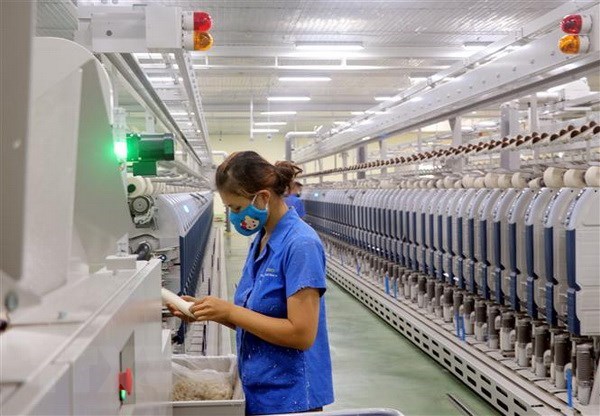Processing – major contributor to Vietnam’s economy
Thứ Ba, 25/12/2018, 03:12
With certain advantages, Vietnam has been the destination for many multinational businesses to seek processors, and processing in turn have become a major growth engine of the economy.
 |
|
With certain advantages, Vietnam has been the destination for many multinational businesses to seek processors, and processing in turn have become a major growth engine of the economy (Illustrative photo: VNA) |
Nguyen Trung Tien, Director of the Trade and Service Statistics Department at the General Statistics Office (GSO), said according to the 2017 economic census, there were 1,740 businesses processing goods for foreign companies in Vietnam in 2016.
The value of materials imported for these processing and assembly processes accounted for 12 percent of the country’s total import turnover. Vietnam-based firms were paid 8.6 billion USD in processing fees by foreign businesses in 2016, including 7 billion USD for FDI businesses, 1.5 billion USD for non-State companies and 77 million USD for State-owned firms.This activity has greatly contributed to Vietnam’s export and import, he noted, elaborating that the trade turnover of processed goods at these companies made up over 18 percent, equivalent to 32.4 billion USD, of the country’s total trade turnover. Their imports of materials from foreign partners accounted for 11.5 percent, or 20.2 billion USD, of total import revenue.
Tien said the domestic processing industry currently focuses on textile-garment and footwear. Textile-garment brought home 4.1 billion USD or 48 percent of total processing costs, followed by footwear with 2.7 billion USD (32 percent). Meanwhile, the assembly of electronic products and computers raked in 63 million USD (0.7 percent), and the mobile phone assembly earned 268 million USD (3.1 percent) in 2016.
The official noted that processing contractors in Vietnam have brought about social effects when they provided more than 1 million jobs in 2016, thus helping to reduce the unemployment rate and improve workers’ income.
Additionally, serving as contractors for foreign enterprises has also helped local firms learn management experience from developed countries to improve their operation.
However, he noted as most of the materials for processing and assembly are supplied by foreign partners, it is difficult for Vietnamese companies to stay active in the production process or master production technologies. As a result, the added value generated by this activity remains modest.
Data show that in 2016, the revenue Vietnamese firms earned from the processing activity accounted for only 26.4 percent of the total value of processed goods.
Director Tien said to make processing more profitable, local enterprises should better capitalise on opportunities from processing contracts to access advanced governance experience and technologies of foreign partners coming from developed nations.
Additionally, they should connect with one another to form value chains to supply materials for processing and assembly, thus raising the rate of locally made components in products.
The Government also needs to issue appropriate policies to create optimal conditions for Vietnamese suppliers, he added.
VNA

